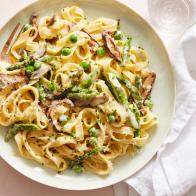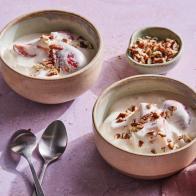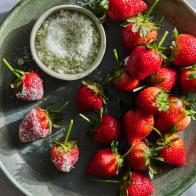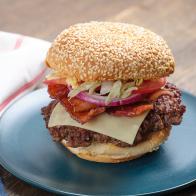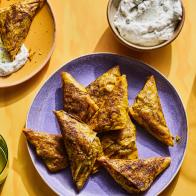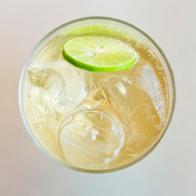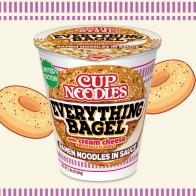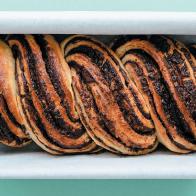These Diets May Not Be Safe While Pregnant or Breastfeeding
Certain weight-loss diets may be risky to both mother and baby during pregnancy and nursing.
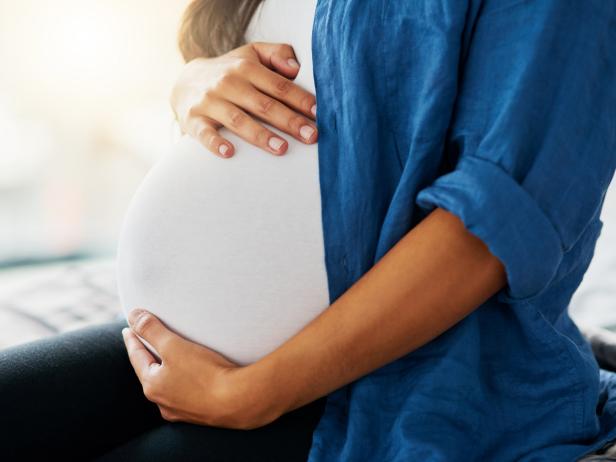
Adene Sanchez/Getty Images
Millions of Americans follow a weight-loss diet each year. However, if you're pregnant or nursing a weight-loss diet may not be the best eating pattern. Getting adequate nutrients through a variety of foods is important for both mother and baby, and some elimination diets and diets with a weight loss goal can be risky during pregnancy and while breastfeeding. Here's what you need to know, and the risks of following four popular weight-loss plans during pregnancy and while nursing.
Is It Safe for Women Follow a Weight-Loss Diet During Pregnancy or While Breastfeeding?
"I strongly advise against dieting during pregnancy or while postpartum and nursing," says Crystal Karges MS, RDN, IBCLC, Maternal Child Health Specialist at Crystal Karges Nutrition. "A woman's overall nutrient needs to support her physical and mental health are at an all-time high during pregnancy, postpartum and while lactating. Dieting only makes it more challenging to adequately and appropriately meet these nutrient needs to sustain overall health and milk supply."
In addition, Karges says that women have shifting hormones and appetite levels during pregnancy and postpartum which are better stabilized with regular and consistent food intake. Fad dieting can not only negatively affect milk supply, but it can also trigger mood swings, prolong postpartum healing from childbirth, increase risk of maternal mental health conditions, and cause disordered eating.
Weight-Loss Diets to Avoid While Pregnant or Nursing
Let's break down the risks of four popular diets while pregnant or nursing.
Intermittent Fasting
There is very little research about intermittent fasting and pregnancy, and much of it has been done in animals. "Going for prolonged periods of time without food can result in low blood sugar (glucose) in pregnant women, which stimulates a cascade of events that, over time, may affect the health of the developing baby," explains Elizabeth Ward, MS, RD, author, Expect the Best: Your Guide to Healthy Eating Before, During, and After Pregnancy. "Babies require a constant source energy and a long list of nutrients to grow and develop properly, and going hours on end without eating is counterproductive during pregnancy. Given the lack of research, I don't recommend any form of IF in pregnancy."
When nursing, women need as many calories during the first six months of breastfeeding as in the third trimester of pregnancy. After you deliver, your body is in recovery mode from nine months of pregnancy, and you shouldn't deprive it of the nutrients it needs; you need to eat for yourself and for your nursing baby. Going for very long periods of time without food can decrease your milk supply, and it can reduce the levels of omega-3 fats, choline, vitamins and minerals in breastmilk, which may affect your child's development. "If you want to use IF to help drop pregnancy pounds, I suggest holding off until your child is at least six months old," says Ward.
Keto Diet
"A diet based on 70% fat, 20% protein and 10% carb is lacking many nutrients crucial during pregnancy,” says Sarah Krieger, MPH, RDN. In addition, Ward says "animal studies suggest that the keto diet during pregnancy limits baby's growth" and explains that women following the keto diet to the letter are producing ketones as energy source, and nobody really knows the effects that could have during pregnancy and breastfeeding. The keto diet is very high in saturated fat, which is not recommended for any stage of life, including pregnancy and nursing.
Paleo Diet
A Paleo diet typically includes only lean meats, fish, fruits, vegetables, nuts and seeds and eliminates grains, dairy, and legumes. Ward says, "We don't live in the Stone Age, and we know that grains, dairy and legumes are nutritious foods that mom and baby benefit from." A Paleo diet is not a good idea during pregnancy or breastfeeding, given that avoiding certain foods or food groups can rob the baby of important nutrients, including phytonutrients, calcium and vitamin D.
Calorie-Counting Diets
Karges says that she wouldn't recommend any calorie-counting diets or diets based on points for pregnant or lactating women. "Any weight loss plan that has you counting calories or points in a very specific way is going to deter you from responding to your body's individual needs. In the case of pregnant and lactating women, this is especially dangerous, as their needs are usually much higher than what's allotted in these restrictive eating diets," says Karges. During pregnancy and new motherhood, eating by external rules, rather than responding to internal body cues, can make food chaotic and confusing making it difficult for a woman to actually be present in her life and to have the mental energy to focus on the things that matter most. This could be conflicting for any woman trying to navigate new motherhood.
What If You Still Want to Diet While Pregnant or Nursing?
Working with your doctor and a registered dietitian is important for pregnant women and new moms interested in following a specific diet during this stage of their lives. Krieger says that working with a registered dietitian "is key to determine what is the best diet (or way of eating) that will help her reach her nutrition goals." It’s important for moms to remember that the ultimate goal is a healthy full-term baby and mother. Post-partum weight loss is more obtainable even when calorie needs are increased. "I know moms want to lose weight quickly, but it’s best to continue to eat mostly the same way while pregnant: a balanced diet with vegetables, lean protein, monounsaturated fats, whole grain options and fruits," explains Krieger.
Toby Amidor, MS, RD, CDN, is a registered dietitian and consultant who specializes in food safety and culinary nutrition. She is the author of The Greek Yogurt Kitchen: More Than 130 Delicious, Healthy Recipes for Every Meal of the Day.
*This article was written and/or reviewed by an independent registered dietitian nutritionist.
Related Links:
